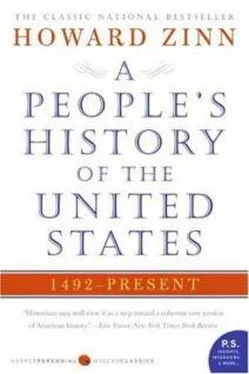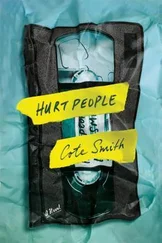Howard Zinn - A People
Здесь есть возможность читать онлайн «Howard Zinn - A People» весь текст электронной книги совершенно бесплатно (целиком полную версию без сокращений). В некоторых случаях можно слушать аудио, скачать через торрент в формате fb2 и присутствует краткое содержание. Издательство: Harper-Collins, Жанр: Фэнтези, на английском языке. Описание произведения, (предисловие) а так же отзывы посетителей доступны на портале библиотеки ЛибКат.
- Название:A People
- Автор:
- Издательство:Harper-Collins
- Жанр:
- Год:неизвестен
- ISBN:нет данных
- Рейтинг книги:4 / 5. Голосов: 1
-
Избранное:Добавить в избранное
- Отзывы:
-
Ваша оценка:
- 80
- 1
- 2
- 3
- 4
- 5
A People: краткое содержание, описание и аннотация
Предлагаем к чтению аннотацию, описание, краткое содержание или предисловие (зависит от того, что написал сам автор книги «A People»). Если вы не нашли необходимую информацию о книге — напишите в комментариях, мы постараемся отыскать её.
A People — читать онлайн бесплатно полную книгу (весь текст) целиком
Ниже представлен текст книги, разбитый по страницам. Система сохранения места последней прочитанной страницы, позволяет с удобством читать онлайн бесплатно книгу «A People», без необходимости каждый раз заново искать на чём Вы остановились. Поставьте закладку, и сможете в любой момент перейти на страницу, на которой закончили чтение.
Интервал:
Закладка:
By the spring of 1983, the nuclear freeze had been endorsed by 368 city and county councils across the country, by 444 town meetings and 17 state legislatures, and by the House of Representatives. A Harris poll at this time indicated that 79 percent of the population wanted a nuclear freeze agreement with the Soviet Union. Even among evangelical Christians-a group of 40 million people presumed to be conservative and pro-Reagan-a Gallup poll sampling showed 60 percent favoring a nuclear freeze.
A year after the great Central Park demonstration, there were over three thousand antiwar groups around the country. And the antinuclear feeling was being reflected in the culture-in hooks, magazine articles, plays, motion pictures. Jonathan Schells impassioned book against the arms race, The Fate of the Earth , became a national best-seller. A documentary film on the arms race made in Canada was forbidden to enter the country by the Reagan administration, but a federal court ordered it admitted.
In less than three years, there had come about a remarkable change in public opinion. At the time of Reagan's election, nationalist feeling-drummed up by the recent hostage crisis in Iran and by the Russian invasion of Afghanistan-was strong; the University of Chicago's National Opinion Research Center found that only 12 percent of those it polled thought too much was being spent on arms. But when it took another poll in the spring of 1982, that figure rose to 32 percent. And in the spring of 1983, a New York Time /CBS News poll found that the figure had risen again, to 48 percent.
Antimilitarist feeling expressed itself also in resistance to the draft. When President Jimmy Carter, responding to the Soviet Union's invasion of Afghanistan, called for the registration of young men for a military draft, more than 800,000 men (10 percent) failed to register. One mother wrote to the New York Time :
To the Editor: Thirty-six years ago I stood in front of the crematorium. The ugliest force in the world had promised itself that I should be removed from the cycle of life-that I should never know the pleasure of giving life. With great guns and great hatred, this force thought itself the equal of the force of lift.
I survived the great guns, and with every smile of my son, they grow smaller. It is not for me, sir, to offer my son's blood as lubricant for the next generation of guns. I remove myself and my own from the cycle of death.
Isabella Leitner
Former Nixon aide Alexander Haig warned, in an interview in the French journal Politique Internationale , that there might reappear in the U.S. the conditions that forced President Nixon to stop the draft. "There is a Jane Fonda on every doorstep," he said.
One of the young men who refused to register, James Peters, wrote an open letter to President Carter:
Dear Mr. President: On July 23, 1980, I… am expected to report to my local post office for the purpose of registering with the Selective Service System. I hereby inform you, Mr. President, that I will not register on July 23, or at any time thereafter… We have tried militarism, and it has failed the human race in every way imaginable.
Once he was in office, Ronald Reagan hesitated to renew draft registration, because, as his Secretary of Defense, Caspar Weinberger, explained, "President Reagan believes that resuming the draft to meet manpower problems would lead to public unrest comparable to that in the sixties and seventies." William Beecher, a former Pentagon reporter, wrote in November 1981 that Reagan was "obviously concerned, even alarmed, by the mounting voices of discontent and suspicion over emerging U.S. nuclear strategy both in the streets of Europe and more recently on American campuses."
Hoping to intimidate this opposition, the Reagan administration began to prosecute draft resisters. One of those facing prison was Benjamin Sasway, who cited U.S. military intervention in El Salvador as a good reason not to register for the draft.
Aroused by Sasway's civil disobedience, a right-wing columnist (William A. Rusher, of the National Review ) wrote indignantly that one heritage of the sixties was a new generation of antiwar teachers:
Almost certainly there was a teacher, or teachers, who taught Benjamin Sasway to look at American society as a hypocritical, exploitative, materialistic roadblock on the path of human progress. The generation of the Vietnam protesters is now in its early thirties, and the academicians among them are already ensconced in the faculties of the country's high schools and colleges… What a pity our jurisprudence doesn't allow us to reach and penalize the real architects of this sort of destruction!
Reagan's policy of giving military aid to the dictatorship of El Salvador was not accepted quietly around the nation. He had barely taken office when the following report appeared in the Boston Globe :
It was a scene reminiscent of the 1960s, a rally of students in Harvard Yard shouting antiwar slogans, a candlelight march through the streets of Cambridge… 2000 persons, mostly students, gathered to protest U.S. involvement in El Salvador… Students from Tufts, MIT, Boston University and Boston College, the University of Massachusetts, Brandeis, Suffolk, Dartmouth, Northeastern, Vassar, Yale and Simmons were represented.
During commencement exercises that spring of 1981 at Syracuse University, when Reagan's Secretary of State, Alexander Haig, was given an honorary doctorate in "public service," two hundred students and faculty turned their backs on the presentation. During Haig's address, the press reported, "Nearly every pause in Mr. Haig's fifteen-minute address was punctuated by chants: 'Human needs, not military greed! 'Get out of El Salvador! ' Washington guns killed American nuns! "
The last slogan was a reference to the execution in the fall of 1980 of four American nuns by Salvadoran soldiers. Thousands of people in El Salvador were being murdered each year by "death squads" sponsored by a government armed by the United States, and the American public was beginning to pay attention to events in this tiny Central American country.
As has been true generally in the making of U.S. foreign policy, there was no pretense at democracy. Public opinion was simply ignored. A New York Time /CBS News poll in the spring of 1982 reported that only 16 percent of its sampling favored Reagan's program of sending military and economic aid to El Salvador.
In the spring of 1983, it was disclosed that an American physician named Charles Clement was working with the Salvadoran rebels. As an Air Force pilot in Southeast Asia, he had become disillusioned with U.S. policy there, having seen firsthand that his government was lying, and refused to fly any more missions. The Air Force response was to commit him to a psychiatric hospital, then to discharge him as psychologically unfit. He went to medical school, and then volunteered to be a doctor with the guerrillas in El Salvador.
There was much talk in the American press in the early eighties about the political cautiousness of a new generation of college students concerned mostly with their own careers. But when, at the Harvard commencement of June 1983, Mexican writer Carlos Fuentes criticized American intervention in Latin America, and said, "Because we are your true friends, we will not permit you to conduct yourselves in Latin American affairs as the Soviet Union conducts itself in Central European and Central Asian affairs," he was interrupted twenty times by applause and received a standing ovation when finished.
Among my own students at Boston University, I did not find the pervasive selfishness and unconcern with others that the media kept reporting, in deadening repetition, about the students of the eighties. In the journals they kept, I found the following comments:
Читать дальшеИнтервал:
Закладка:
Похожие книги на «A People»
Представляем Вашему вниманию похожие книги на «A People» списком для выбора. Мы отобрали схожую по названию и смыслу литературу в надежде предоставить читателям больше вариантов отыскать новые, интересные, ещё непрочитанные произведения.
Обсуждение, отзывы о книге «A People» и просто собственные мнения читателей. Оставьте ваши комментарии, напишите, что Вы думаете о произведении, его смысле или главных героях. Укажите что конкретно понравилось, а что нет, и почему Вы так считаете.












